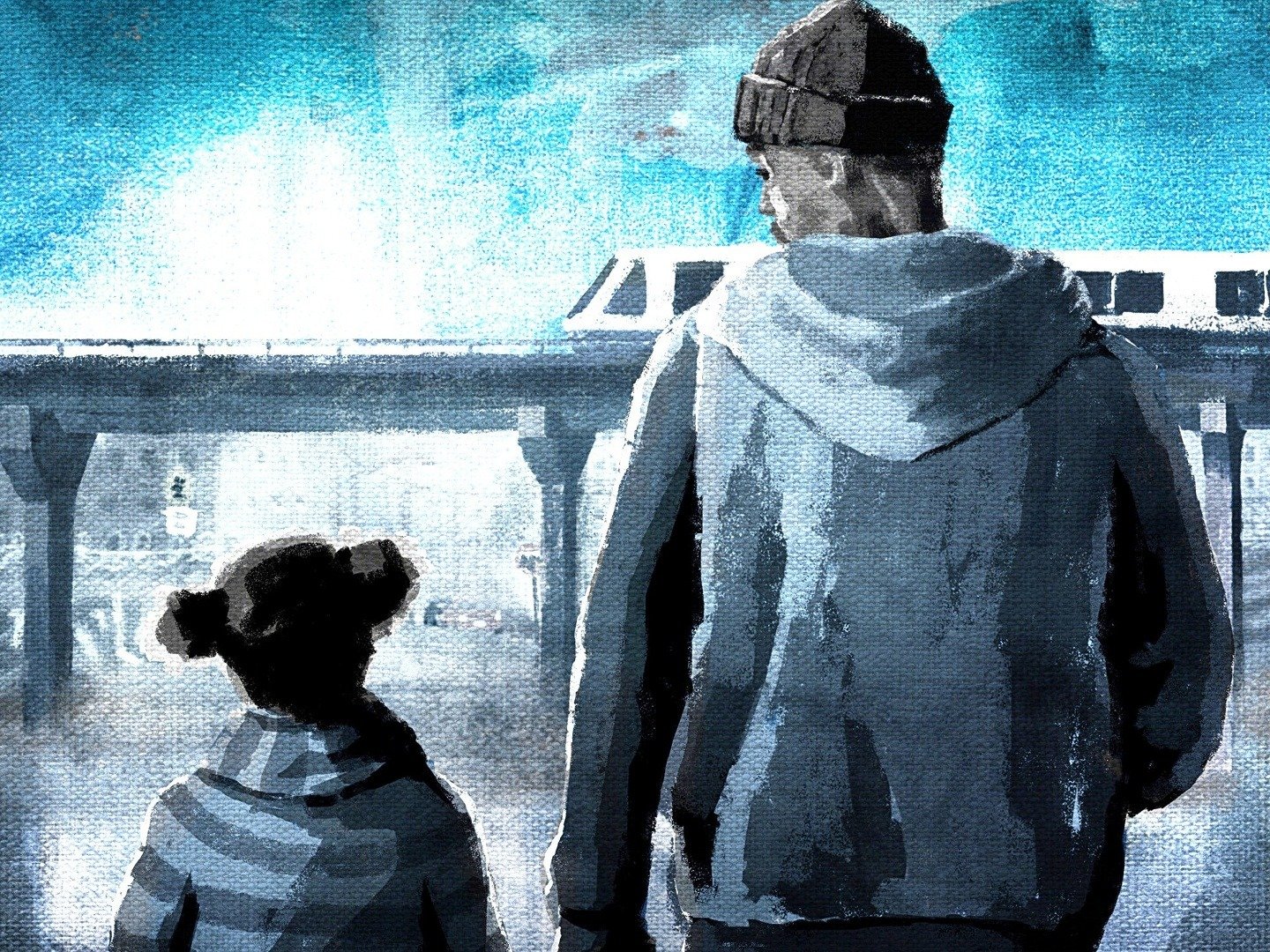
FRUITVALE STATION
(director/writer: Ryan Coogler; cinematographer: Rachel Morrison; editors: Michael P. Shawver/Claudia S. Castello; music: Ludwig Goransson; cast: Michael B. Jordan (Oscar Grant), Melonie Diaz (Sophina), Octavia Spencer (Wanda), Kevin Durand (Officer Caruso), Chad Michael Murray (Officer Ingram), Ahna O’Reilly (Katie), Ariana Neal (Tatiana), Marjorie Shears (Grandma Bonnie), Destiny Ekwueme (Chantay); Runtime: 85; MPAA Rating: R; producers: Nina Yang Bongiovi/Forest Whitaker; the Weinstein Company; 2013)
“Assured directorial debut of the 26-year-old Ryan Coogler.”
Reviewed by Dennis Schwartz
The assured directorial debut of the 26-year-old Ryan Coogler leaves us with an emotionally gripping and heart-pulling murder story based on a real incident that took place at the BART station in the Bay Area on the New Year’s Eve of 2008, when a white officer fatally shot the 22-year-old handcuffed ex-con Oscar Grant (Michael B. Jordan), placed on the station platform with his black friends for disturbing the peace on the train. The senseless shooting led to community riots over racial profiling and police brutality and the two officers involved were fired while the shooter was later convicted of an involuntary manslaughter charge and served an 11-month prison sentence. The drama, filmed like a documentary, records the last 24-hours of the victim’s troubled life and tries to put a positive spin on the career criminal’s flawed life–humanizing him as someone who was trying to put his troubled past behind him.
The sensitive, well-acted and engrossing film won both the Grand Jury Prize for dramatic feature and the Audience Award for U.S. dramatic film at the 2013 Sundance Film Festival. It can be viewed as an advocate for justice film that puts a human face on its rather charming but unpleasant subject, as it manipulates things so it seems there’s no doubt that the police acted improperly while failing to place proper responsibility on the unruly youths for their part in the incident. It follows the travails of the African-American drug dealer Oscar, released from a prison term (never mentioning what crime he did) and unable to hold a supermarket clerk’s job because of chronic tardiness. Oscar is viewed as he’s just patching up a conflict with his live-in Spanish-American girlfriend Sophina (Melonie Diaz). He vows not to cheat again on her with that bitch and shows love for his cute four-year-old daughter, Tatiana (Ariana Neal). His religious mom (Octavia Spencer) is disappointed in his criminal behavior but has reconciled with him after she sees he’s trying to go straight since his prison release, and looks forward to having him come over that night to celebrate her birthday. After the birthday party dinner, at the urging of mom, Oscar, his wife and friends, take the BART into San Francisco to watch the fireworks instead of driving after drinking and at the Oakland area Fruitvale Station tragedy strikes the youth when he runs into a white supremacist enemy from his prison days and soon all hell breaks loose.
I don’t think the pic’s positive take on the unemployable, headstrong, irresponsible, aimless and confused criminal subject made him into a martyr, but serves to point out instead the large gulf in this country between black and white attitudes and how violent society is even over a simple arrest because of the ongoing animosity shown between the hostile youths and brutish police.
A number of eyewitness video recordings of the shooting popped up on YouTube, which is shown in the beginning, giving the viewer a sense of the chaotic situation but not clarifying what happened because the images were too murky. Though the well-intentioned pic is excellently executed and the acting by Jordan and Spencer are smashing, it fails to tell us more than what we already think we know about the incident and its further ambitions to go beyond the headlines and lead us to think the victim’s POV is the final arbitrator in the incident is arbitrary; especially, since it’s pointed out the vic is a liar, his changeable character veers to the bad side when he gets hotheaded and the public’s emotions run high because of the racial nature of this tragedy–each race might see things from its own experiences. For me, the truth that this film tells is that there’s still a race problem in the country despite the election of a black president.
REVIEWED ON 9/24/2013 GRADE: B